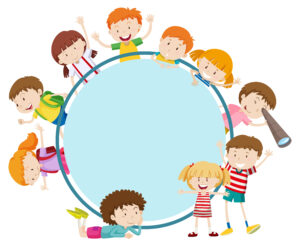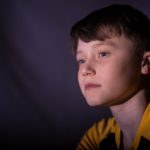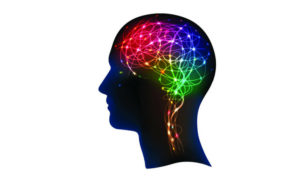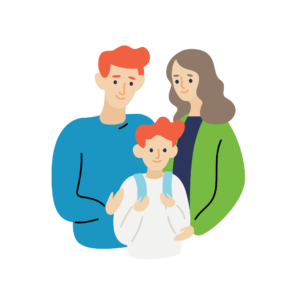- We provide a range of professional services for children, adolescents and families.
Our Services
About Our Services
- We commit to providing the highest standard of practice by adhering to, and reaching beyond, the APS Code of Ethics.
- Services can be delivered in English and Mandarin Chinese.
- Evidence-based intervention programs and therapies to assist our clients.
- We believe in collaborative efforts to bring out the best outcomes for our clients, empowering parents and relevant stakeholders to achieve continuing growth.
- We view mental health issues as a social responsibility and emphasise the importance of Systemic Change.
Our Services Include
We provide a wide range of assessments for both children and adults at Aspiration Education and Development Clinic, including:
- Autism Assessment
- Cognitive Assessment
- ADHD Assessment
- Comprehensive Learning Assessment
- Dyslexia Assessment
- Adaptive behaviour assessments (Vineland)
- Other psychometric assessments
 AEDC provides evidence-based early intervention programs following Australian Government’s ‘Guidelines for Good Practice’. There are a wide range of interventions for ASD; from behaviour therapy based (e.g. Applied Behaviour Analysis) to development based intervention approaches and combined intervention approaches (e.g. Early Start Denver Model).
AEDC provides evidence-based early intervention programs following Australian Government’s ‘Guidelines for Good Practice’. There are a wide range of interventions for ASD; from behaviour therapy based (e.g. Applied Behaviour Analysis) to development based intervention approaches and combined intervention approaches (e.g. Early Start Denver Model).
Our experienced therapists are able to work with your child, their strengths and areas needing support, beyond their diagnoses. We aim to empower parents to better engage and teach your child, and collaborate with childcare centres and other professionals.
 AEDC Social Skills Training is applied through role-playing, social stories, visual prompts and video modelling. We provide various Social Skills training programmes at our Baulkham Hills clinic to best support your child’s social skills development. The purpose of our Social Skills programme is to offer your child a safe environment, with an experienced facilitator, in which to explore social issues with their peers.
AEDC Social Skills Training is applied through role-playing, social stories, visual prompts and video modelling. We provide various Social Skills training programmes at our Baulkham Hills clinic to best support your child’s social skills development. The purpose of our Social Skills programme is to offer your child a safe environment, with an experienced facilitator, in which to explore social issues with their peers.
For your early intervention child, we start with small social skills groups of just two children who are paired together at similar developmental stages, to learn how to act in different social situations, from interacting with the family doctor when they visit, to playing with friends at school. These skills are developed through the use of role-playing, social stories, visual prompts and video modelling. As your child’s skills develop, they move into a group of three children, again similarly matched, to assist them with managing the dynamics of a larger social grouping.
For your early-primary aged child, we have groups of between 2-6 children who are matched together to ensure they are at a similar developmental stage and share common interests. These Social Skills groups work through an evidence-based programme designed specifically for this age group to assist children in developing the skills required to successfully interact with their peers. Its focus is to explicitly teach core emotions, to understand the intensity of emotions, to acknowledge that people may have different emotions and/or perspectives and to learn how to problem solve effectively.
For your upper-primary aged child, we hold groups of various sizes, with children that are carefully matched, depending on the social needs of your child. The programme for these groups is carefully managed to meet both the developmental and social needs of the members of the group. Topics covered can include: improved conversation skills, conflict resolution, dealing with challenging social situations including peer pressure and bullying, understanding perspectives of others, ethical dilemmas and high school transition.
For your adolescent child, Social Skills groups are managed to ensure that your child’s individual needs are best matched with peers of a similar developmental stage. Programme content for this age group vary widely between groups, depending on each child’s therapy outcomes.
Our Social Skills Programmes are regularly monitored and assessed to ensure best therapy outcomes for each child. As such, placement of Social Skills members may change on occasion to ensure that each child continues to progress alongside peers at a similar stage of development. Please be assured that parents will always be consulted to ensure therapy goals are being met. It is important to us that your child gets the most out of our Social Skills Programme; please feel welcome to discuss with us (your practitioner)? any particular concerns you might have for the developmental needs of your child.
Our Social Skills Programs
Westmead Feelings Program (WFP)
The Westmead Feelings Program is an evidence-based intervention designed to help children with autism spectrum disorder (ASD) develop emotional competence. It targets two age groups: children with pre-literacy skills and children with fluent speech and reading ability. The program uses video modeling, visual supports, and a common language for emotions (color-coded and numbered) to teach children how to identify, understand, and express their feelings, as well as manage their emotional responses. Research suggests the program improves children’s emotional competence, social skills, and mental health, making it a valuable tool for parents, teachers, and other professionals working with children with ASD.
Super Social Squad
“Super Social Squad” extends from Westmead Feeling Program, further developing your child’s skills in identifying and expressing more nuanced emotions, improving communication with others, recognising sarcasm and jokes, problem solving and negotiating with others, managing difficult social situations, identifying areas of interests/learning styles and personal safety.
Teen Titans
“Teen Titans” extends from Secret Agent Society, further meeting your child’s social communication needs in adolescence. The program includes identifying and expressing more nuanced emotions, improving communication with others, problem solving and negotiating with others, managing difficult social situations, identifying areas of interests/learning styles and personal safety.
 AEDC assists children and families to build skills and learn desired behaviours by investigating what behaviours are required for your child to cope with academic and/or social situations and assisting with strategies to acquire the desired behaviours (e.g., behaviour therapy). By acquiring more adaptive skills to cope with demands, research has shown that challenging behaviours will consequently reduce.
AEDC assists children and families to build skills and learn desired behaviours by investigating what behaviours are required for your child to cope with academic and/or social situations and assisting with strategies to acquire the desired behaviours (e.g., behaviour therapy). By acquiring more adaptive skills to cope with demands, research has shown that challenging behaviours will consequently reduce.
 AEDC assists individuals to strengthen their skills in effectively managing and responding to an emotional experience. Depending on individual needs, skills in emotion regulation can be guided through psychodynamic therapy, relaxation techniques, brain training, and Cognitive Behaviour Therapy (CBT). For children between 8 – 12 years and/or adolescents, AEDC utilises programs, such as ‘The Zones of Regulation’ (Kuypers), to help acquire skills in emotion regulation.
AEDC assists individuals to strengthen their skills in effectively managing and responding to an emotional experience. Depending on individual needs, skills in emotion regulation can be guided through psychodynamic therapy, relaxation techniques, brain training, and Cognitive Behaviour Therapy (CBT). For children between 8 – 12 years and/or adolescents, AEDC utilises programs, such as ‘The Zones of Regulation’ (Kuypers), to help acquire skills in emotion regulation.
 AEDC supports your child in developing age-appropriate social emotional skills, independent skills and learning skills during school transition and/or transition to adolescence/adulthood. We believe in a family-centred approach and engage parents in the process of transitioning.
AEDC supports your child in developing age-appropriate social emotional skills, independent skills and learning skills during school transition and/or transition to adolescence/adulthood. We believe in a family-centred approach and engage parents in the process of transitioning.
 We provide parent support to assist coping with diagnoses, intervention planning and related issues (e.g. siblings).
We provide parent support to assist coping with diagnoses, intervention planning and related issues (e.g. siblings).
AEDC takes on a family approach and supports parents in the demands of parenting. AEDC incorporates parent training programs, such as ‘Triple P’ and ‘1-2-3 Magic’ and goes beyond behaviour management strategies to support psychological factors that affect individual parenting styles.
You can find our upcoming parent parent programs at the link below.
Parent Programs
 The Circle of Security is a relationship-based early intervention program designed to enhance attachment security between parents and children.
The Circle of Security is a relationship-based early intervention program designed to enhance attachment security between parents and children.
Understand your child’s emotional world by learning to read emotional needs
Support your child’s ability to successfully manage emotions
Enhance the development of your child’s self esteem
Honor the innate wisdom and desire for your child to be secure
 Attention Deficit and Hyperactivity Assessment and Support.
Attention Deficit and Hyperactivity Assessment and Support.
 NeurOptimal® is a neuro-technology that offers training to the brain, enabling it to function at its best. It’s mathematically designed to communicate directly with your central nervous system.
NeurOptimal® is a neuro-technology that offers training to the brain, enabling it to function at its best. It’s mathematically designed to communicate directly with your central nervous system.

